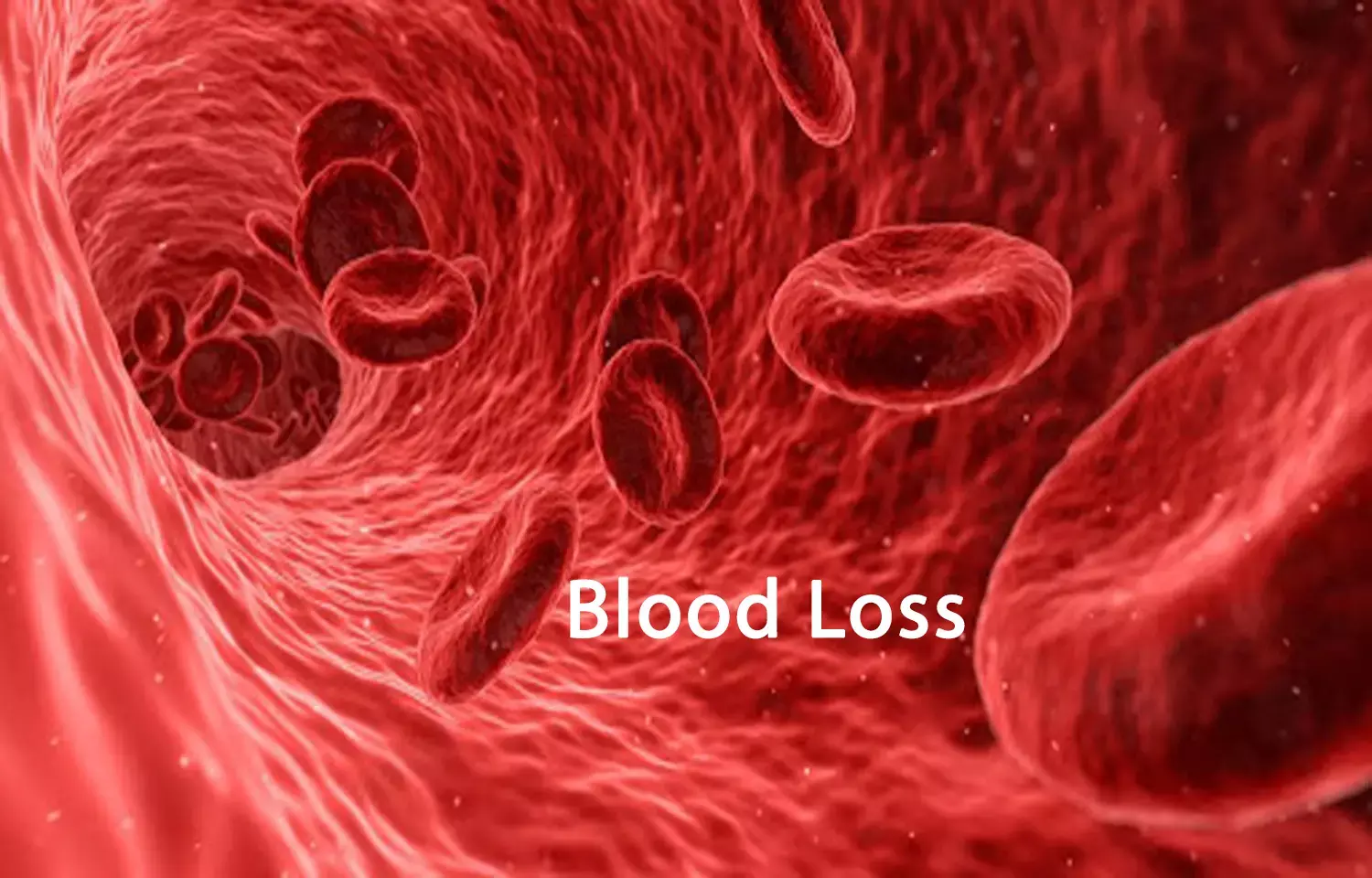- Home
- Medical news & Guidelines
- Anesthesiology
- Cardiology and CTVS
- Critical Care
- Dentistry
- Dermatology
- Diabetes and Endocrinology
- ENT
- Gastroenterology
- Medicine
- Nephrology
- Neurology
- Obstretics-Gynaecology
- Oncology
- Ophthalmology
- Orthopaedics
- Pediatrics-Neonatology
- Psychiatry
- Pulmonology
- Radiology
- Surgery
- Urology
- Laboratory Medicine
- Diet
- Nursing
- Paramedical
- Physiotherapy
- Health news
- Fact Check
- Bone Health Fact Check
- Brain Health Fact Check
- Cancer Related Fact Check
- Child Care Fact Check
- Dental and oral health fact check
- Diabetes and metabolic health fact check
- Diet and Nutrition Fact Check
- Eye and ENT Care Fact Check
- Fitness fact check
- Gut health fact check
- Heart health fact check
- Kidney health fact check
- Medical education fact check
- Men's health fact check
- Respiratory fact check
- Skin and hair care fact check
- Vaccine and Immunization fact check
- Women's health fact check
- AYUSH
- State News
- Andaman and Nicobar Islands
- Andhra Pradesh
- Arunachal Pradesh
- Assam
- Bihar
- Chandigarh
- Chattisgarh
- Dadra and Nagar Haveli
- Daman and Diu
- Delhi
- Goa
- Gujarat
- Haryana
- Himachal Pradesh
- Jammu & Kashmir
- Jharkhand
- Karnataka
- Kerala
- Ladakh
- Lakshadweep
- Madhya Pradesh
- Maharashtra
- Manipur
- Meghalaya
- Mizoram
- Nagaland
- Odisha
- Puducherry
- Punjab
- Rajasthan
- Sikkim
- Tamil Nadu
- Telangana
- Tripura
- Uttar Pradesh
- Uttrakhand
- West Bengal
- Medical Education
- Industry
Oral tranexamic acid at par with IV TXA for preventing blood loss after joint surgery: Study

USA: Oral tranexamic acid (TXA) is equally effective as intravenous (IV) TXA for the prevention of blood loss in total knee and total hip replacement surgery, suggest interim results from a study. The findings of the study were presented at the 2021 Spring American Society of Regional Anesthesia and Pain Medicine (ASRA) Annual Meeting.
Previously suggests that oral, IV and topical TXA are all effective at reducing blood loss and drastically reducing blood transfusion rates during and after surgery, but research with direct comparisons for each method is limited.
"TXA in orthopedic surgery has become the standard of care. However, the most efficient, efficacious, and cost-effective method of administration remains unknown," said principal investigator Stavros Memtsoudis, an anesthesiologist at HSS. "The oral administration of TXA is logistically easier, thus reducing the risk of drug errors in the OR. It is also less costly. We are performing this study to identify if oral TXA is also equally efficacious at preventing blood loss. If this is the case, oral administration of the drug preoperatively as a one-time dose could become the standard of care."
Dr. Memtsoudis and colleagues randomized 199 patients between ages 18 and 80 undergoing total hip or total knee replacement to receive either oral TXA (1950 mg) two hours before surgery or IV TXA (1 g) at the start of the procedure. The primary outcomes observed were blood loss and transfusion rates.
In patients who underwent total hip replacement, the estimated blood loss calculated in the post anesthesia care unit (PACU) for oral TXA was 534 ± 285 mL, versus 676 ± 550 for IV TXA. On postoperative day one, estimated blood loss was 769 ± 257 mL for oral TXA and 798 ± 302 ml for IV TXA.
In patients who underwent total knee replacement, estimated blood loss in the PACU was 289 ± 219 mL for oral TXA, and was 486 ± 670 mL for IV TXA. On postoperative day one, estimated blood loss was 716 ± 288 mL for oral TXA versus 846 ± 659 mL for IV TXA.
No patients received transfusions during surgery. One patient who received IV TXA received a transfusion after surgery.
"Given our interim results, it seems that the oral version of TXA is equally as effective as intravenous administration. This translates to improvements in efficiency, cost and safety, all of which are important for patients, clinicians and policy makers," Dr. Memstoudis said. "The research seems rather clear at this point. However, a uniform translation into policy is what is needed, as there seems to be limited translation of best evidence into practice."
Complete results of this study will be analyzed later this year.
Hina Zahid Joined Medical Dialogue in 2017 with a passion to work as a Reporter. She coordinates with various national and international journals and association and covers all the stories related to Medical guidelines, Medical Journals, rare medical surgeries as well as all the updates in the medical field. Email: editorial@medicaldialogues.in. Contact no. 011-43720751
Dr Kamal Kant Kohli-MBBS, DTCD- a chest specialist with more than 30 years of practice and a flair for writing clinical articles, Dr Kamal Kant Kohli joined Medical Dialogues as a Chief Editor of Medical News. Besides writing articles, as an editor, he proofreads and verifies all the medical content published on Medical Dialogues including those coming from journals, studies,medical conferences,guidelines etc. Email: drkohli@medicaldialogues.in. Contact no. 011-43720751


